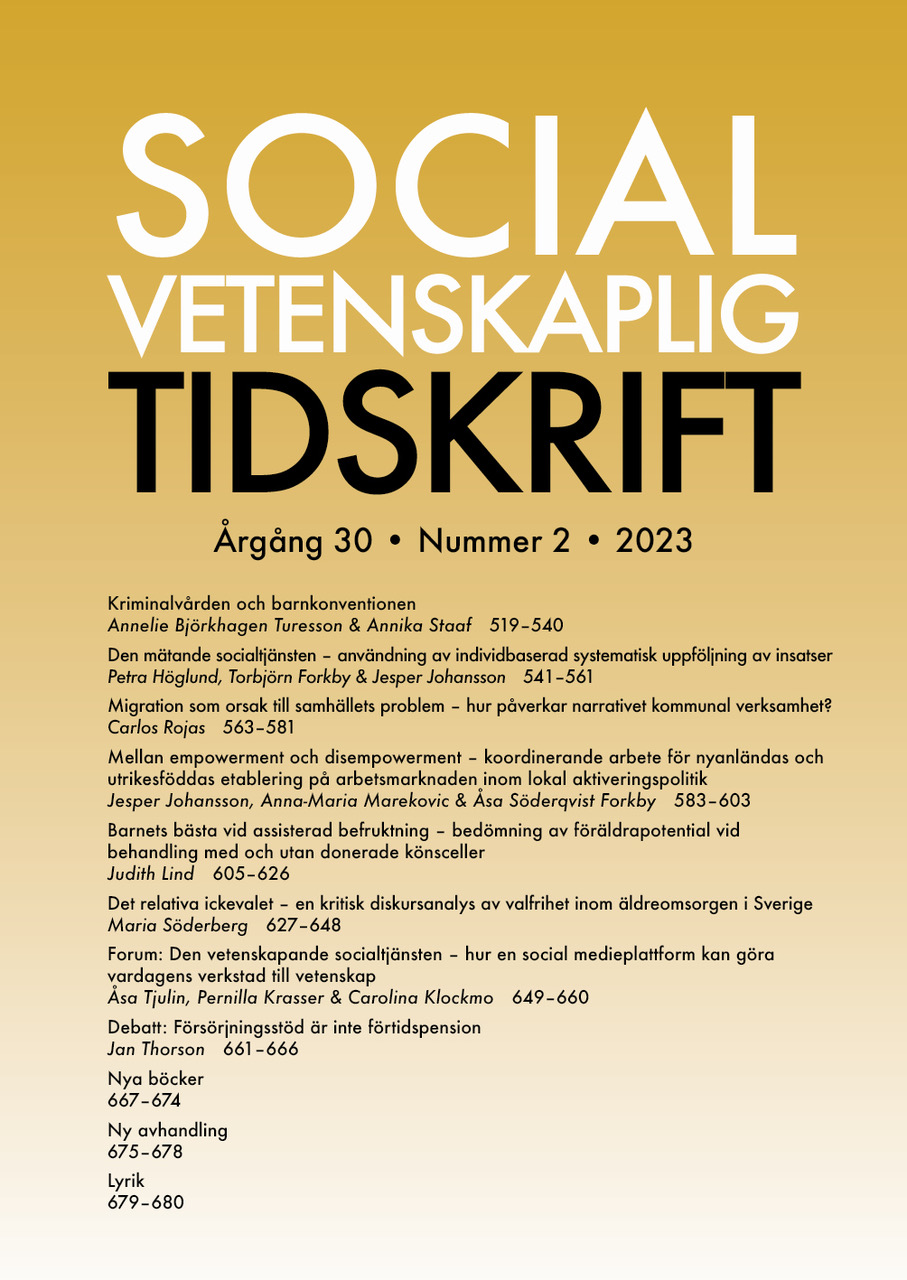The measuring social service organization – the use of individual-based systematic follow-up of interventions
– användning av individbaserad systematisk uppföljning av insatser
DOI:
https://doi.org/10.3384/SVT.2023.30.2.4218Keywords:
systematic follow-up, social services, knowledgeAbstract
The measuring social service organization – the use of individual-based systematic follow-up of interventions
For the past two decades, national policy in Sweden has repeatedly argued that social services should follow the principles of evidence-based practice (EBP) and that intervention effects should be informed by research. Conversely, there is a recurring critique against the “EBP movement” concerning a too narrow view of evidence and limited applicability in social services. Despite these differences, common perceptions advocate a need for local and systematic production of knowledge about the significance of interventions for service users. Individual-based systematic follow-ups (ISF) of interventions aggregated at group level could be a relatively undisputed path towards an increased knowledge base of social services.
Therefore, the article examines and problematizes different dimensions of how ISF is practiced and how results come into use in social services. The research was conducted within social service units providing non-institutional treatment for children, young people, and families in two Swedish municipalities. Both have several years of experience using the ISF models LOKE (Local Evidence) and FIT (Feedback-Informed Treatment) respectively. The empirical material consists of 8 observations, 45 documents, and 21 interviews with family therapists, heads of units and departments, executive directors, and development officers.
The findings reveal a wide range of types of use of ISF, which both overlap and presuppose each other and where the use differs depending on the user’s organizational level and role. Although the results are rarely used for development purposes in distinct ways, it is noted that the ISF models and their results play important roles within the organizations, for example strategic, legitimacy-enhancing and conceptual perspective-giving, which also affect work within the units.
Downloads
Published
How to Cite
Issue
Section
License
Copyright (c) 2023 Petra Höglund, Torbjörn Forkby, Jesper Johansson

This work is licensed under a Creative Commons Attribution 4.0 International License.
Allt material i Socialvetenskaplig tidskrift publiceras sedan 2022 (Vol 28 Nr 2) med omedelbar öppen tillgång (open access), under Creative Commons-licensen CC BY 4.0. Upphovsrätten till innehållet tillhör respektive författare.
Allt innehåll i tidskriften är fritt tillgängligt utan kostnad och får fritt läsas, laddas ned, kopieras, delas, skrivas ut och länkas. När innehållet används måste författare, källa och licens anges. Författaren kan fritt göra sin publicerade text tillgänglig på institutionella och internetbaserade arkiv, exempelvis sitt lärosätes digitala arkiv eller andra tjänster för detta.
Inga publiceringsavgifter tas ut vid publicering i Socialvetenskaplig tidskrift.


